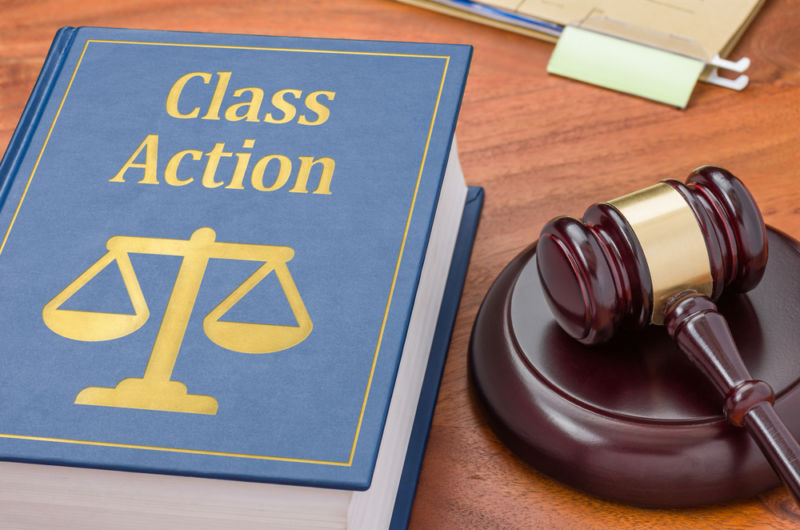Debunking Course Action Lawsuits: A Closer Check Out Legal Proceedings
Course activity lawsuits can be challenging and complicated, frequently shrouded in a veil of secret for those unfamiliar with the lawful proceedings entailed. However, getting a much deeper understanding of these legal actions is critical, as they offer as a powerful tool for people to seek justice and hold companies liable. In this discussion, we will debunk course action lawsuits, taking a more detailed take a look at the numerous elements of the lawful procedures. From comprehending the criteria for class action eligibility to the function of class representatives, and from the procedure of class certification to the resolution of these legal actions, we will certainly decipher the ins and outs and dropped light on the internal workings of this legal device. Allow's dive right into the world of class action suits and uncover the details that exist under the surface area.
Recognizing Class Action Legal Actions
Understanding Class Action Lawsuits calls for a detailed examination of the legal proceedings involved in cumulative litigation. Course activity lawsuits are a kind of lawsuit where a team of individuals with similar cases or complaints collaborate to initiate a claim against an usual accused. This type of lawsuits permits individuals with limited sources to collectively look for justice, as it combines the stamina of numerous specific cases right into a single lawful activity.
The procedure begins with the recognition of a lead complainant or course agent that submits the preliminary problem in behalf of the entire class. The court after that identifies whether the case meets the needs for course qualification, which include commonality, numerosity, typicality, and adequacy of depiction. If licensed, the court informs prospective class participants, providing an opportunity to opt-out if they want to pursue their insurance claims individually.
As soon as the class is accredited, the litigation proceeds via numerous stages, including exploration, movement technique, and, if needed, trial. The result of the claim can lead to a settlement or a judgment, which is binding on all class participants unless they pick to opt-out. Class activity suits can include a variety of lawful issues, such as consumer protection, safety and securities fraud, employment discrimination, and ecological damage.
Comprehending the subtleties of class action suits is critical for both plaintiffs and offenders associated with collective lawsuits. It calls for an extensive understanding of the legal requirements for qualification, the rights and commitments of course participants, and the prospective advantages and dangers connected with safeguarding or pursuing versus class activity cases.
Identifying Class Action Eligibility
To figure out whether a lawful action certifies as a class activity legal action, specific standards should be fulfilled. These standards are designed to ensure that the situation can properly represent the rate of interests of a huge group of individuals who have endured similar injury or have been affected by the very same issue. The essential aspect in identifying class action qualification is the existence of an usual concern or problem that affects all potential course members.
First of all, a class activity suit calls for numerosity, which means there have to be a considerable number of potential class participants entailed. This guarantees that a course action is a reliable way to fix the cases of a huge group of people, instead of having each person file a private legal action.
Second of all, there have to be commonality among the cases of the prospective course participants. This means that there have to be a common inquiry of law or fact that is central to the instance. A class action might not be appropriate. if each possible course participant's insurance claim is distinct and unconnected to the others.

The Duty of Course Representatives
Course agents play an important duty in class activity suits by standing for the passions of the entire course. These individuals are picked from within the class to work as the general public face of the lawsuit and are in charge of choosing in support of all course participants. The role of course representatives involves numerous duties and tasks throughout the legal proceedings.
Among the primary obligations of course agents is to supply info and aid to their fellow course members. They offer as a factor of contact and interaction in between the class members and the attorneys representing them. This includes keeping the course participants educated around vital updates, addressing their concerns, and resolving any kind of worries they might have.
Course agents likewise have the responsibility to proactively join the lawsuits process (Future FinTech class action lawsuit). This includes functioning carefully with the attorneys to establish lawful strategies, gathering proof, and offering statement if needed. They have to be actively associated with all aspects of the instance to ensure that the best passions of the whole course are stood for
In addition, class agents are in charge of approving settlements or other resolutions gotten to in the lawsuit. They should meticulously assess the terms of the negotiation and decide that is in the most effective passion of the entire course. This decision-making process needs cautious factor to consider and examination with the class participants.
The Process of Course Accreditation
The process of accrediting a course in a course activity suit involves a detailed assessment of particular requirements to identify if the situation meets the needed demands for class qualification. Class qualification is an important action in the litigation procedure as it identifies whether a legal action can proceed as a class action, enabling a big group of individuals with similar cases to be represented collectively by one or a couple of individuals.
To obtain course qualification, the complainant has to demonstrate that the suggested course satisfies certain prerequisites. These prerequisites normally consist of numerosity, commonness, typicality, and adequacy of depiction. Numerosity requires that the course is so big that joinder of all participants is impractical. Commonness requires that there are inquiries of legislation or reality usual to the course members. Typicality calls for that the insurance claims or defenses of the class reps are common of those of the class. Competence of representation ensures that the class reps will relatively and adequately safeguard the rate of interests of the course.
The court will certainly inspect these requirements and the plaintiff's proof to establish if the recommended course satisfies the needed needs. The court may also think about other elements, such as whether a class action is the superior method to fix the conflict and whether the class is adequately cohesive.

As soon as the court grants course certification, the legal action can proceed as a course action, enabling the complainants to collectively look for relief and possibly receive a judgment or settlement that benefits the whole class.
Managing Course Action Lawsuits
As soon as class qualification has actually been granted, the following action in fixing a course activity legal action is to browse the procedure of litigation or settlement negotiations. Lawsuits refers to the legal proceedings in court, where the plaintiff's attorney provides evidence and disagreements to support their insurance claims, and the accused's attorney counters with their own proof and disagreements. This process can include numerous phases, such as pretrial movements, discovery, and trial. During pretrial activities, both events may file motions to disregard the case or narrow down the problems in contention. Exploration enables each side to collect evidence and info from the other event with techniques such as document interrogatories, depositions, and requests. If the instance proceeds to test, both celebrations offer their situation before a Future FinTech class action lawsuit court or court, who will then decide the result.
On the various other hand, negotiation arrangements involve discussions in between the parties to get to an equally appropriate resolution without mosting likely to test. Archer-Daniels-Midland class action lawsuit. Negotiation offers may be made at any phase of the lawsuits procedure, and if both events concur, a negotiation arrangement is gotten to. This contract normally outlines the terms and conditions of the settlement, consisting of any type of financial settlement, injunctive relief, or other treatments. As soon as the settlement is completed, it is offered to the court for authorization.
Conclusion
To conclude, class activity lawsuits play a critical duty in supplying justice and payment to large teams of people who have been damaged by the very same entity. By assigning and licensing a class class representatives, the lawful process ends up being much more easily accessible and efficient for the plaintiffs. Resolving these suits can be a complex and extensive process, however it is important in holding corporations accountable for their activities and making certain fair results for all affected parties.
From understanding the criteria for class activity qualification to the function of class representatives, and from the process of class accreditation to the resolution of these suits, we will unravel the details and lost light on the internal functions of this legal device. The crucial variable in determining class activity eligibility is the presence of an usual concern or issue that influences all potential course members.
If each possible class participant's insurance claim is unassociated and unique to the others, a course activity may not be appropriate.
Course representatives play a crucial duty in class action legal actions by representing the passions of the entire class.When course qualification has actually been granted, the following step in solving a class action legal action is to browse the process of lawsuits or negotiation arrangements.